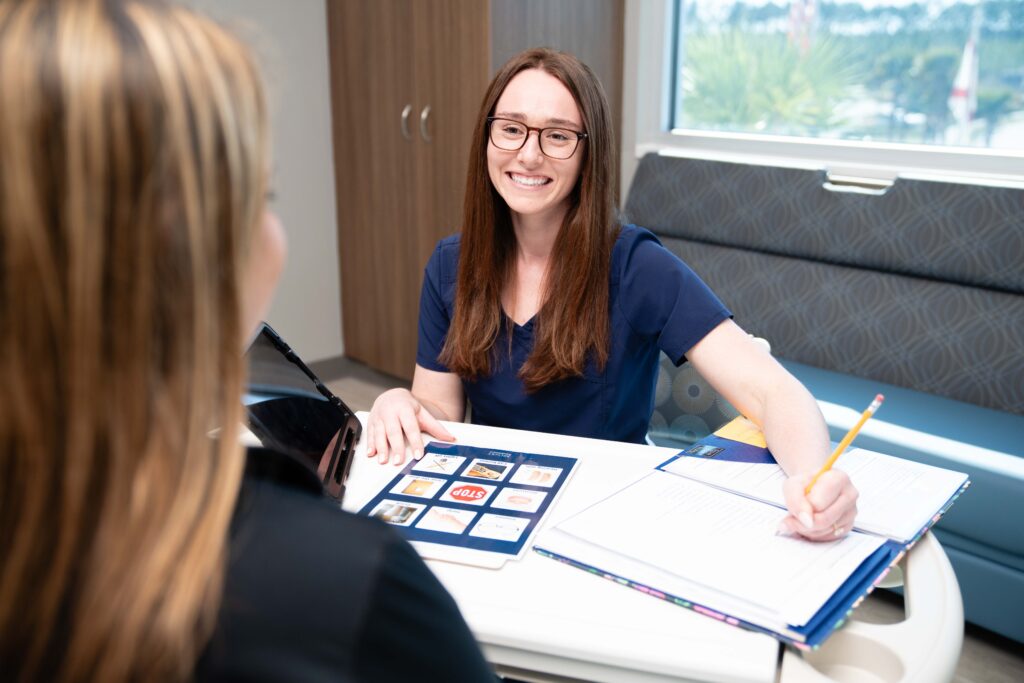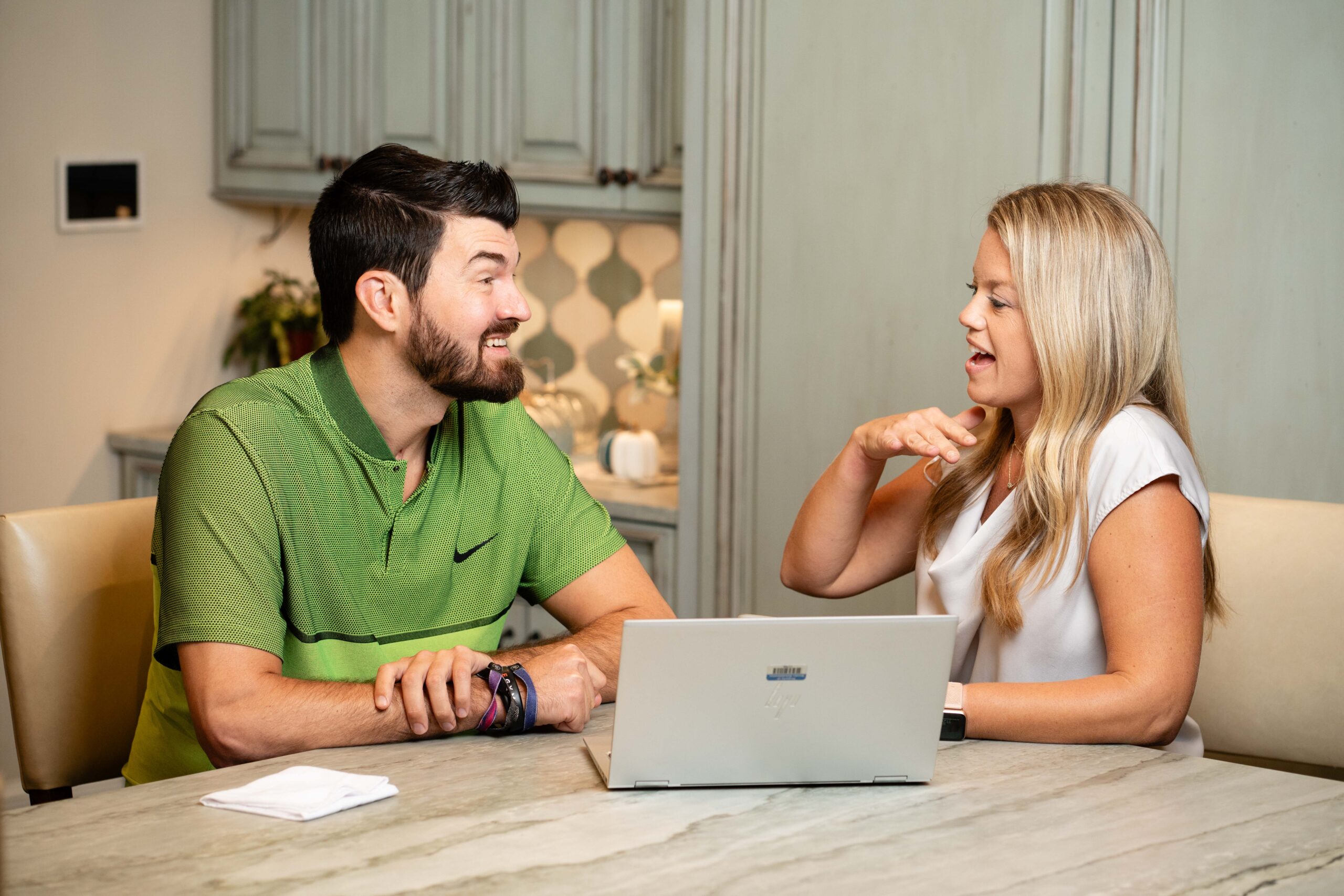Types of motor speech disorders we treat
Our motor speech disorders treatment program is available through Brooks’ outpatient clinics and home health division and supports adults (18+). The program provides treatment for multiple types of motor speech disorders, including:
- Apraxia of speech
- Primary progressive apraxia of speech (PPAOS)
- Oral apraxia
- Velar insufficiency
- Hypernasality
- Hyponasality
- Dysarthria
- Acquired neurogenic voice disorders
- Acquired neurogenic stuttering

Treatment services available
Patients can expect a variety of treatment services to treat their particular disorder. Treatments include, but are not limited to:
- Augmentative alternative communication (AAC)
- Phonomotor treatment
- Sound production treatment
- Respiratory muscle strength training (EMST/IMST)
- Iowa Oral Pressure Instrument (IOPI) treatment
- Voice therapy
- Speak OUT & LSVT trained clinicians
- Speech Vive for Parkinson’s disease
Electropalatography (EPG) is available for severe motor speech cases.
Neurologic disorders associated with motor speech disorders
Motor speech disorders result from neurologic impairments affecting the planning, programming, control or execution of speech. The two primary diagnoses are apraxia of speech and dysarthria.
The most common disorders that cause motor speech issues include:
Parkinson’s Disease
Traumatic Brain Injury
Amyotrophic Lateral Sclerosis (ALS)
Multiple Sclerosis (MS)
Motor speech support groups at Brooks
Brooks hosts two motor speech support groups for adults with motor speech disorders and their families. Visit our support group page to learn more.

Request care
A referral is needed for a patient to receive treatment from our expert clinicians. Brooks offers motor speech therapy at select outpatient clinics and home health regions. Depending on the care setting, please send a patient referral to:
Outpatient Clinics
(904) 345-7277
Fax: (904) 345-7280
[email protected]
Home Health
(904) 306-9729
Fax: (904) 306-0110
Program collaborators
- Lauren Bislick, PhD, CCC-SLP, assistant professor, director of Aphasia House at the University of Central Florida.
- Karen Hegland, PhD, CCC-SLP, associate professor and director of the Master of Arts degree in communication sciences & disorders at the University of Florida.
- Bari Hoffman, PhD, CCC-SLP, professor, associate dean of clinical affairs, University of Central Florida.
- Christine Sapienza, PhD, CCC-SLP, professor, executive vice president of the Office of Partnerships & Development and dean of the Brooks Rehabilitation College of Healthcare Sciences at Jacksonville University.
- Jackie Hurst, CCC-SLP, program manager, Eric Sorensen Motor Speech Program at Brooks
- Jodi Morgan, manager, Brooks Rehabilitation Aphasia Center and clinical assistant professor at Jacksonville University.
More Information
For more information about the Eric Sorensen Motor Speech Program and support group, contact Jackie Hurst, program manager, at [email protected].
